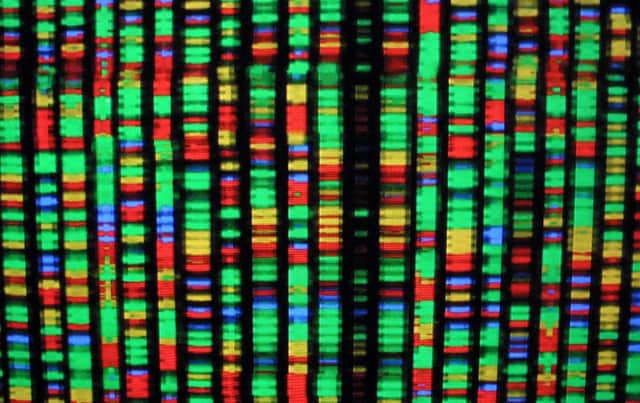Genomic research that can help explain personality traits and behaviour raises ethical questions – Dr Silvia Paracchini


Increasingly cheap and powerful technology means genomic data can be generated at scale, allowing the investigation of the genetic basis for all sorts of traits, including our behaviour and personality.
These discoveries have been greatly facilitated by large cohorts like the UK Biobank, in which genetic data are linked to hundreds of physical measures, imaging (for example, of the brain and heart), data and cognitive functions for over half a million participants. This large amount of data has accelerated genomic research at an unprecedented pace.
Advertisement
Hide AdAdvertisement
Hide AdFor example, in 2018 the UK Biobank facilitated the discovery of over 1,200 genetic factors, contributing to differences in education attainment.
Each factor has a very small individual effect, which becomes meaningful only when counted in aggregation with the others. Their aggregated value, which gets formally computed and referred to as polygenic risk score (PRS), explains up to 13 per cent of the variation in education attainment.
This discovery has sparked a hot debate on the utility of these data; the 13 per cent figure can be considered both as “a lot” as well as “very little”.
On one side of the debate are full supporters of the education PRS and its potential in designing early educational interventions. The sceptical side does not recognise any possible application of PRS, neither for education nor most other traits, that could be useful to our society.
Middle-ground positions acknowledge that currently the predictive value of PRS is not informative but can argue that, with larger samples, PRS will become more accurate.
The results are therefore not universally transferable and could be relevant only to a small fraction of the population, risking widening the gap between who can benefit and those most in need.
Crucially, the debate highlights the necessity to bring clarity about the potential as well as limitations of genomic research.
Such issues feature in the Genomics Beyond Health report, launched by the UK Government in January, looking at how genomics will become prominent in our lives. The report recognises that genomics now extend well beyond biomedical research and makes the case for establishing solid ethical and governance frameworks to deal with a range of questions we might face.
Advertisement
Hide AdAdvertisement
Hide AdFor example, PRS could become available for different personality traits like neuroticism, extraversion, and conscientiousness, opening a series of questions. Could we use personality PRS to assess candidates’ aptitude for specific jobs? Could we use PRS as a mitigating factor in criminal cases or to predict criminal behaviour?
Other questions could arise around unethical applications of genetic data, for example in enhancing elite athletes’ performance. Laws and regulations are therefore urgently needed to safeguard progress in research as well as the privacy and security of personal data. Increasing knowledge of our genome will lead to big dilemmas for our society. Establishing trust with the public through clear and frank communication will be vital for positive outcomes.
Dr Silvia Paracchini is a reader in the University of St Andrews’ School of Medicine and a Royal Society of Edinburgh fellow. This article expresses her own views. The RSE is Scotland’s national academy, bringing great minds together to contribute to the social, cultural and economic well-being of Scotland. Find out more at rse.org.uk and @RoyalSocEd.
A message from the Editor:
Thank you for reading this article. We're more reliant on your support than ever as the shift in consumer habits brought about by coronavirus impacts our advertisers.
If you haven't already, please consider supporting our trusted, fact-checked journalism by taking out a digital subscription.
Comments
Want to join the conversation? Please or to comment on this article.